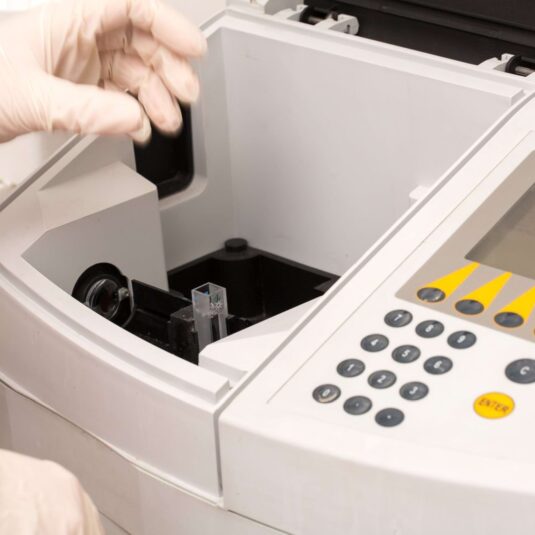The benefits of outsourcing your biomanufacturing to a Polish CDMO
Mabion

Biomanufacturing outsourcing allows companies to focus on core competencies while leveraging the expertise and infrastructure of specialized CDMOs.
When you think of global hubs of biomanufacturing outsourcing, does Poland come to mind? If the answer is no, you are going to want to keep reading. That is because, in the search for a CDMO that will provide cost-effective services, speed to market, and a convenient location, Poland may be a great alternative to more established geographies. While it hasn’t historically been recognized as a destination for biologic manufacturing, the events of the last several years ― extreme supply chain delays, vaccine demand due to a global pandemic, and research and development innovations – have triggered several changes, including enhanced infrastructure funding from the European Union (EU), that are putting reputable Polish CDMOs in the spotlight.
Thanks to a renewed commitment to the EU’s biomanufacturing industry, the robust resources of Poland are becoming increasingly appealing to drug developers looking for high quality and technical precision at an attractive cost. That said, it takes a long time to build trust and accountability with a new foreign partner. As you evaluate the options for your next CDMO, consider the rewards of biomanufacturing outsourcing in Poland, where innovation and collaboration are driving exciting growth and new opportunities for the biotech industry.
Work with a Team Centrally Located in the EU
Following the COVID-19 pandemic and its lingering challenges around supply chain delays, outsourcing capacity, and long lead times, the EU established the EU Biotech and Biomanufacturing Initiative which aims to increase competitiveness, resilience, and modernization among EU countries to bolster the EU as a hub for biotech innovation and manufacturing.1 The plan proposes the following key actions, all of which would benefit companies that partner with a CDMO in Poland:
- Conducting research to identify where the EU stands in comparison to other biotech leaders in terms of innovation and determine how the EU can better leverage existing research infrastructures;
- Escalating market demand by demonstrating the lower environmental impact of bio-based products when compared to less environmentally friendly products;
- Streamlining regulatory pathways to shorten the time to market for innovative products and establishing the EU Biotech Hub, a tool to help companies navigate regulatory frameworks and identify helpful resources;
- Supporting collaboration between EU companies by encouraging companies to find and deploy innovative technologies via the Regional Innovation Valleys matchmaking map, which seeks to pair European companies with relevant local partners;
- Implementing artificial intelligence and generative artificial intelligence to support biomanufacturing;
- Launching international biomanufacturing partnerships with key partners, including the U.S., India, Japan, and South Korea; and
- Procuring mechanisms to increase fundingand investment in EU biomanufacturing via public and private partnerships.1
These initiatives and others are helping to ensure that biotech companies and CDMOs within the EU have the resources they need to support life-changing therapies and a culture of innovation.
Benefit From Rich Collaboration and Education
In addition to robust support from the EU, Poland has significant internal infrastructure to support the growth of the biomanufacturing industry. Poland has been a part of NATO since 1999 and the EU since 2004, making it a safe and stable economy for business partnerships. Working with a CDMO in Poland facilitates an ease of communication for U.S. based and/or English-speaking companies thanks to the high levels of English fluency in the country.
Poland is home to 40+ universities which emphasize the importance of biopharma degrees and incorporate coursework with biotech research to foster an understanding of molecular biology, biochemistry, molecular biology tools and techniques, and the business of biotech.2 In addition to their rigorous academics, students can also work with biotech companies to further hone their skills and build practical knowledge. One example is Mabion, a CDMO in Poland that collaborates closely with Polish universities to source talent. Mabion and the Medical University of Lodz partake in a symbiotic relationship in which students can work with Mabion to gain real world experience and learn from professionals, while Mabion can benefit from both their assistance and their expertise post-graduation.
Poland is ranked first in Central Eastern Europe for its number of bio-pharma graduates, and fifth in all of Europe.3 As of 2019, there were 25,707 graduates from universities in Poland within the health sector.2 As the academic sector has expanded, the biotech business sector has continued to blossom across the country. Recent data shows promise that the biotech field in Poland will continue to grow:
- Polish pharmaceutical exports were valued at 4.4 billion in 2022, a more than 50% increase over the previous year.3
- In 2022, Poland was ranked as the 22nd pharmaceutical exporter in the world.3
- 13% of all startups in the country are in the med-tech sector.4
- 25% of venture capital in Poland was allocated to businesses in the healthcare sector.4
And though Poland’s biotechnology sector is relatively young — having started to develop after 1990 —that isn’t necessarily a disadvantage to collaborators.3 Without a long legacy of traditional biomanufacturing practices to adhere to, CDMOs in Poland can implement the newest, most innovative approaches to biomanufacturing, including modern bioreactors and infrastructure that are rented to partners at highly affordable costs.
To ensure that stakeholders across companies within Poland are sharing knowledge and experiences, BioForum – the Association of Biotechnology Companies is an organization that aims to foster in-country collaboration and networking opportunities. A networking platform owned by BioForum – the CEBioForum – also strives to disseminate news about Polish biotech worldwide while helping companies understand the specificity of the biotech business to ensure regulatory compliance and successful timeline management. Each year, BioForum hosts an international biotech conference in Poland, Central European BioForum, that features guests from more than 20 countries. BioForum represents the collective voice of its members when interacting with regulatory bodies, government agencies, and policymakers at the national level or European level (as BioForum is member of EuropaBio – the European Association for Bioindustries). BioForum advocates for policies that support the growth of the biotechnology sector, address industry challenges, and promote innovation. This is an excellent opportunity to meet potential business partners and get acquainted with what is happening in the biotech space across Central Eastern Europe.
Increase Time to Market & Reduce Biomanufacturing Outsourcing Costs
Amid the global pandemic in 2020, Novavax, a U.S. biotech company focused on vaccines, sought to manufacture a COVID-19 vaccine as soon as possible, despite a lack of existing manufacturing capacity and the inability to rapidly build new plants. To address this obstacle, Novavax opted to partner with Mabion for initial lab scale runs of their vaccine drug substance and, eventually, commercial manufacturing. There are a wide range of factors that led them to partnering with a CDMO in Poland.
For one, manufacturing in Central Eastern Europe is significantly less expensive than manufacturing in Western Europe, which still boasts lower costs than U.S. manufacture. Biomanufacturing companies in Poland are all regulated under the EU’s intellectual property (IP) framework, which seeks to prevent IP leaks for biotech companies and ensure EMA authorization. Beyond these safeguarding mechanisms, the Polish culture is synonymous with a strong work ethic and a meticulous focus on quality ― a notable advantage in any industry. Mabion is centrally located in Europe, and at the heart of biotech innovation with the EU. In its collaboration with Novavax, Mabion was reconfigured to begin manufacturing 24/7 in just a few weeks’ time, demonstrating a high level of agility and adaptability for customers that could reduce costs and increase time to market.
In a saturated biotech market, CDMOs drive up costs due to demand. However, in newer markets like Poland, drug developers often enlist CDMO services for significantly lower costs. Failed batches also drive up the overall cost of a project. In its partnership with Novavax, Mabion had zero failed batches, allowing them to keep quality high and cost low. In Novavax’s experience, working with a well-managed, globally oriented company, allowed them to do more with less.
See the Impact Firsthand
Though the biotech scene in Poland is relatively new, this is a huge advantage for drug developers looking for innovative approaches, affordable costs, and rapid timelines. In its high-value work with Novavax, Mabion established itself as a reliable global CDMO that could deliver a high-quality product on tight timelines. Beyond that, close collaboration between BioForum, manufacturers, and academia is helping to build a robust biotech infrastructure that offers both the scientific talent and resources to outfit major manufacturing projects. By choosing biomanufacturing outsourcing, organizations can accelerate production timelines, reduce costs, and ensure compliance with industry standards. If you are curious how a manufacturing partnership with a CDMO in Poland can benefit your program, now is the time to find out.
Prepared by:
Adam Pietruszkiewicz
Magdalena Kulczycka
Tadeusz Pietrucha
References
- European Union. (2024, March 20). Commission takes action to boost biotechnology and biomanufacturing in the EU. European Commission. Available at: https://ec.europa.eu/commission/presscorner/detail/en/ip_24_1570 (Accessed July 3, 2024).
- Polish Investment and Trade Agency. Polish Pharmaceuticals. www.paih.gov.pl. Available at: https://www.paih.gov.pl/en/sectors/pharmaceutical/ (Accessed July 3, 2024).
- Szczygielski, K., Lewkowicz, J., & Michałek, J. J. (2022). The biotechnology sector in a latecomer country: The case of Poland. New Biotechnology, 68, 97–107. Available at: https://doi.org/10.1016/j.nbt.2022.01.008 (Accessed July 3, 2024).
- Polish Investment & Trade Agency. (2023, December). Invest in Poland. Warsaw, Poland.
Related resources

Antibodies Development Best Practices for CDMO Collaboration
Drug development, Manufacturing, Monoclonal antibody

UV-VIS Spectrometry for Protein Concentration Analysis: Principles and Applications
Analytics, Biologics, Proteins

Qualitative analysis of Host Cell Proteins using mass spectrometry
Analytics, Drug development, Drug product, Drug substance